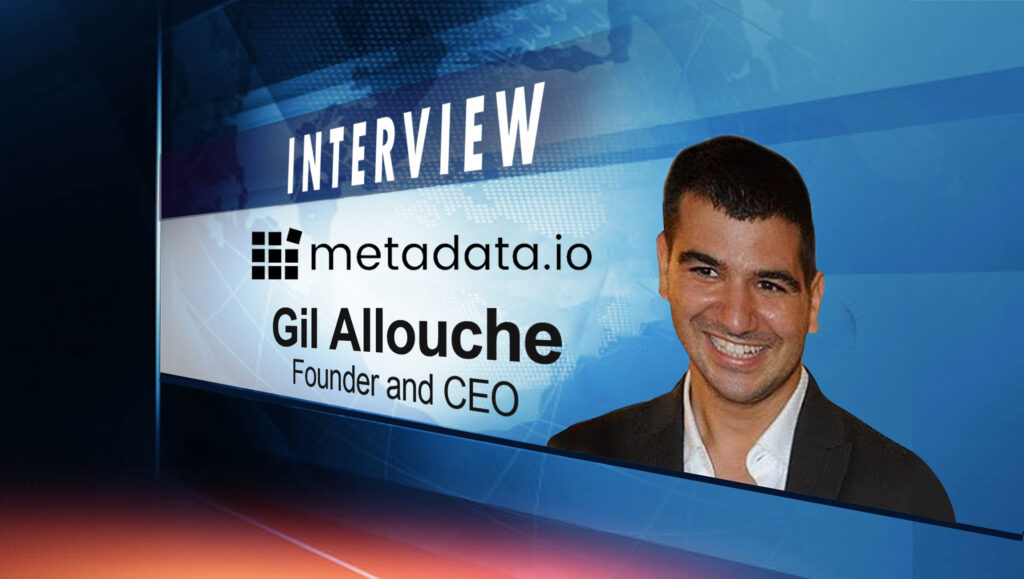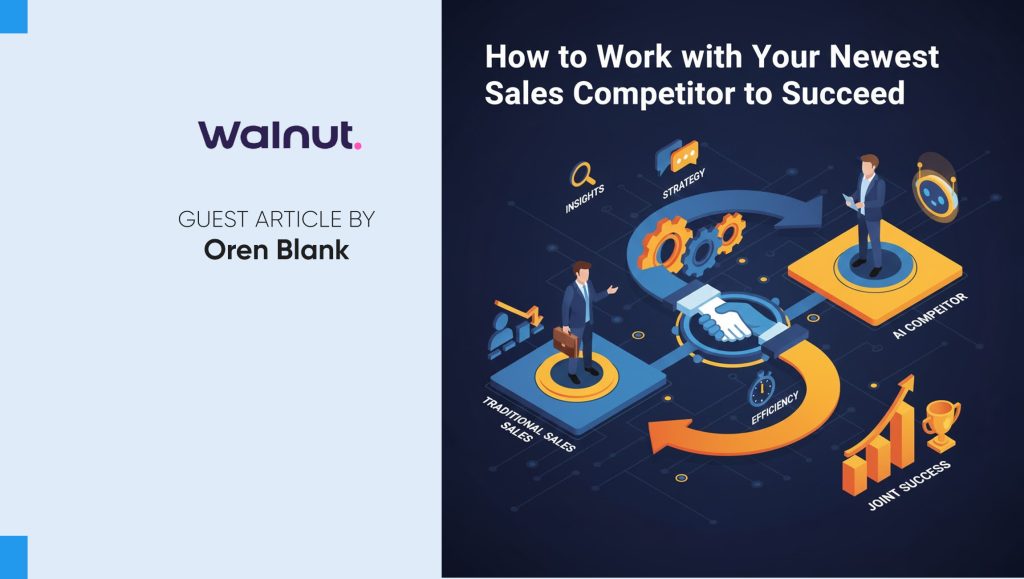Gil Allouche, Founder and CEO at Metadata.io talks about the evolution of demand gen tactics in the B2B market while sharing a few near-term predictions for martech and salestech in this chat with SalesTechStar: ______ Being a tech startup founder is great and everything I ever wanted. Not necessarily what I thought it would be 🙂 One of my favorite things about being a founder of a growing startup is the ability to grow professionally and personally in a constantly changing environment. Every time I learn something new and improve myself and the company, the rules change and the risk gets bigger. Managing a 10-person company is different from managing a 50-person startup, and raising $10m in funding is different from raising $100m. I look at this experience as an opportunity to grow myself in such a way that I’ll be ready for the challenges ahead in the future, and a testing environment for my personal and leadership skills. Read More: SalesTechStar Interview With Justin Swain, VP Strategic Partnerships At OpenReel Demand generation used to be more of an art than science, and it is certainly more of a science now. With thousands of technologies, data providers, channels and an ever growing marketing mix, marketers, especially in b2b, have to determine what is going to work for their company, product and target market. There is no silver bullet, which is what many marketers are beginning to find out. Instead, there are methodologies and rules of engagement that can guarantee you success. I like to divide it into data and experimentation. Data can ensure you only target the right companies and the right people within those companies, and experimentation ensures that you constantly trial and error until you find out the best performing campaigns and workflows for your buyers. It could be a LinkedIn Conversation Ad, a drift chatbot playbook, or a branding campaign on YouTube. Trying and monitoring will guarantee you find the answer. Consumer patterns are starting to take over the b2b enterprise customer journey, so buyers in b2b are leveraging more and more data and information, hence have more leverage before they even come to interact with the vendor. This changes demand generation as you truly have to provide your prospects with the most effective experience to consume, otherwise they’ll go elsewhere to consume that information. Websites like G2, Glassdoor and Capterra allow companies to look up reviews about your company and product. New companies such as Vendr will ensure buyers get the best deal and shorten the sales cycle, and the list goes on and on. Companies that try the same old tactics of pushing sales brochures to their prospects with no clear pricing or true conversation will lose. Martech and Salestech will continue to evolve with more and more technologies coming up on the landscape — and that’s a good thing. We need to learn how to focus on which technologies, data and channels apply to our business and addressable market, and use experimentation as a means to an end to operate those technologies, and constantly monitor which experiments move the needle (=generate pipeline) and which don’t (vanity metrics). Companies don’t have a clear understanding of the attributes that make a true good prospect and customer, and they sometimes just ‘copy and paste’ someone else scoring methodologies (attended a webinar +10, pricing page +5). It’s always best to start by reverse engineering great customers, and learning what the customer journey truly is. It doesn’t take more time, but ensures that you give appropriate weight to truly important events, vs. vanity events that may be important somewhere else, but not for your company. We are stronger than ever with a cohesive inclusive culture, ever growing personnel and remote environment. We look forward to almost tripling in size and making b2b marketing fun again but taking away the drudgery of campaign execution and monitoring, allowing marketers to focus on creative and strategic aspects of their jobs, and, most importantly, overperforming and exceeding their pipeline and revenue goals. Read More: SalesTechStar Interview With Lisa Beaudoin, Co-Founder And Chief Customer Officer At Brightspot Metadata’s patented technology executes thousands of B2B campaigns in a matter of hours, automatically optimizing campaigns for pipeline impact at a velocity that is not humanly possible. Gil Allouche is the founder and CEO of Metadata.io, an autonomous demand generation platform that automates the most critical but often tedious marketing tasks to help companies efficiently scale their demand generation efforts. Companies like Zoom, Vonage, Workato, and Pendo rely on Metadata to identify and target their best-fit accounts across LinkedIn, Facebook and display channels, launch campaigns at a scale that is humanly impossible, and optimize those campaigns to revenue. Prior to Metadata, he was the VP marketing at Qubole, a big data cloud company. Previously, he ran marketing at Karmasphere (Acquired by FICO). Before that, I ran marketing for Spotfire, where he developed and executed go-to-market plans that increased growth by 600% in just 18 months.Hi Gil, we’d love to hear about your journey through the years and what inspired Metadata! What’s it like being a tech startup founder, a few key learnings to share?
How have you seen Demand Generation trends change in marketing over the years?
Can you talk about the future of Demand Generation in connection to evolving technologies today and how you feel global tech innovations will revamp how sales and marketing teams approach lead generation and demand generation with time?
We’d love to hear your thoughts on the future of salestech and martech in general; how do you feel these landscapes will evolve further in the next few years?
What are some of the biggest flaws you still see teams in marketing and sales make when they use predictive scoring to qualify leads: a few best practices that you feel they need to be following more?
We’d love to hear about your 2021 plans for Metadata.io, a little bit about the team culture and experience working through the pandemic!























